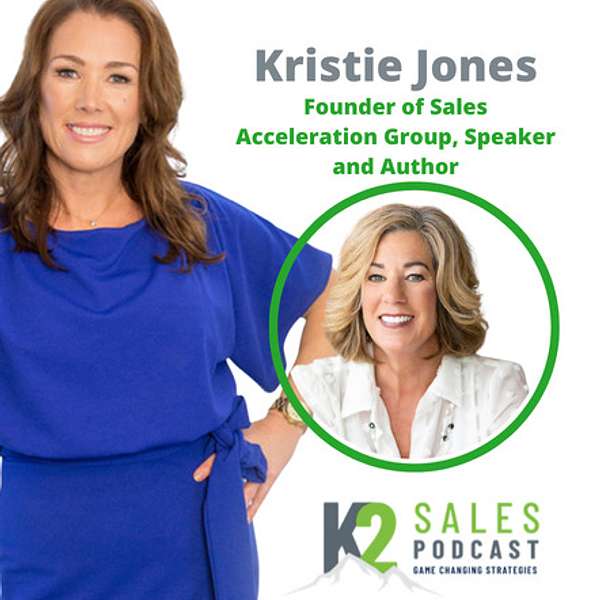What does it take to break in to sales?
What are interviewers looking for?
How do I prepare?
Sales is a tough but rewarding career.
Many are on the outside wondering it it’s for me, others are tirelessly knocking on doors trying to get in.
Kristie Jones Founder of Sales Acceleration Group, Speaker and author joins me.
She provides answers to the above, shares insights from her own sales journey and so many more nuggets for anyone looking to get in to sales.
Get your note pads out, this is a good one.
Kristie has provided Behavioural interview questions for hunters as well as interview questions sales candidates should be asking.
Download here
https://salesaccelerationgroup.com/k2
For more content like this, join hundreds of other subscribers to The K2 Sales Academy. Our subscription based on line sales training platform.
$495/year unlocks the Fundamentals of Sales program with built in knowledge checks, resource folder with scripts, templates and checklists as well as regular webinars.
1:1 and group coaching packages available as well.
To access our free one week Trial visit The K2 Sales Academy
Hiring process and screening: Covers interview process, screening criteria, and preparation for both interviewer and interviewee
Onboarding and training for new hires: Focuses on onboarding process, including training and de-risking hiring process
Choosing the right sales job: Emphasizes importance of selecting sales job based on industry, company culture, and product/service, highlighting impact on income.
Vetting the Company: Tips on vetting a company before applying, including looking at product/service, checking Glassdoor reviews, and reaching out to LinkedIn connections.
Standing Out in the Interview Process: Advice on catching hiring managers' attention during interviews, asking specific questions and showing knowledge about company and industry.
Importance of Numbers on Resumes: Significance of including quantifiable achievements on resumes, especially in sales roles, to demonstrate performance and attract attention.
Finances and Funding: Discusses importance of asking about company's funding and runway, understanding financial stability and future prospects.
Product Development and Roadmap: Highlights significance of asking about company's product development, roadmap, and competitiveness in the market.
Endgame and Growth: Discusses importance of understanding company's endgame and growth rate, aligning with individual preferences and risk tolerance.
Qualities and Traits Interviewers Look For: Discussion on qualities and traits sought by interviewers in SDR and customer success roles.
Paths out of the SDR Role: Explores different career paths for SDRs, including account executive, customer success, solution consultant, or marketing.
Importance of Basic Sales Skills for SDRs: Emphasis on developing basic sales skills for SDRs and avoiding jobs focused solely on presenting without qualifying questions.
Transition Statement and Critical Thinking: Importance of transition statement in sales and negative impact of not using critical thinking skills.
Lack of Foundational Sales Skills: Focus on lack of basic sales skills in today's sales reps and reliance on scripts instead of understanding human behavior.
Vetting the Company and Talking to Current Employees: Importance of vetting company and speaking to current employees, transparency, and red flags
Importance of Career Planning: Transitioning from job-focused thinking to career-focused thinking and maximizing lifetime income
Making the Right Career Moves: Personal experience of making wrong career move and need to recognize and correct it quickly.
Learning from Failures and Adapting: Importance of failing fast, learning from failures, and making adjustments to stay on right path.
Top Ten Percenters' Habits: Consistent habits of top performers in sales, such as exercising, consuming business content, and networking.
Investing in Personal and Professional Development: Importance of taking responsibility for personal growth and development outside of company-provided resources
Cultural Fit vs. Cultural Add: Looking for diversity and unique experiences in candidates, rather than just fitting existing company culture.
Round Table Discussion: Importance of surrounding oneself with people who challenge and question the leader to improve the company.
Hiring without an Education: Speaker values life experience and grit over college degrees in sales.
Changing Value of Education: Discussion on how high cost of education and changing job market have shifted value placed on college degrees.
